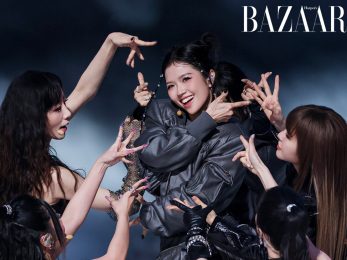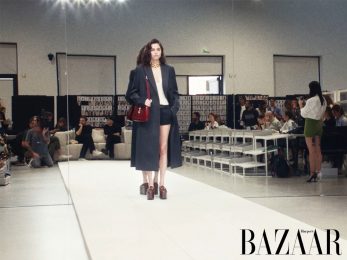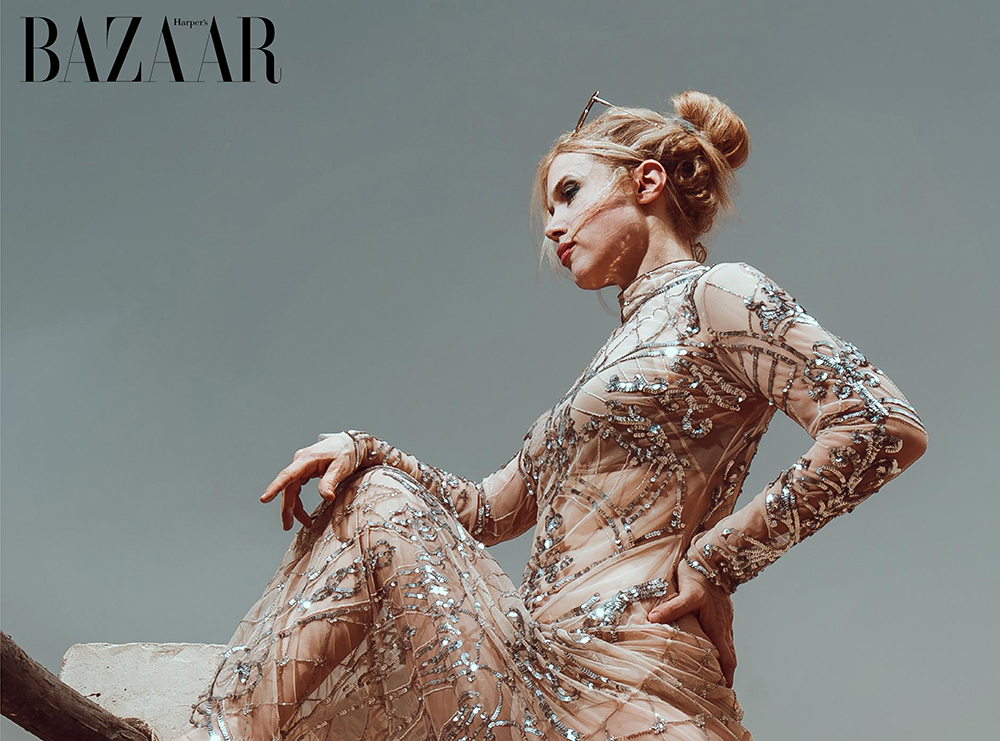
Artist Melanie Francesca.
Melanie Francesca began her academic journey at the renowned Academy of Fine Arts in Venice, an institution within the world of art education in Italy. There, she found herself completely immersed in a world of boundless creativity and ceaseless inspiration. While pursuing her studies, she also ventured into modeling, starting her career in the fashion capital of the world, Paris. Her glamorous lifestyle not only opened doors to exciting opportunities but also provided her with the privilege of traveling extensively, collecting a wealth of diverse experiences. As her career spanned the globe, she earned a reputation as an adventurer, someone who traversed the planet in pursuit of her passions. Melanie’s travels took her through the Middle East, an experience that left a great imprint on her life and influenced her decision-making in significant ways. With each step of her journey, Melanie Francesca became a sought-after figure, drawing attention from magazines of that era. Her presence graced the front covers of prestigious and widely read fashion publications, setting her status as a notable figure in the fashion world. Her appearances on television and in high-profile photo shoots surged, propelling her into a new era of fame and recognition.
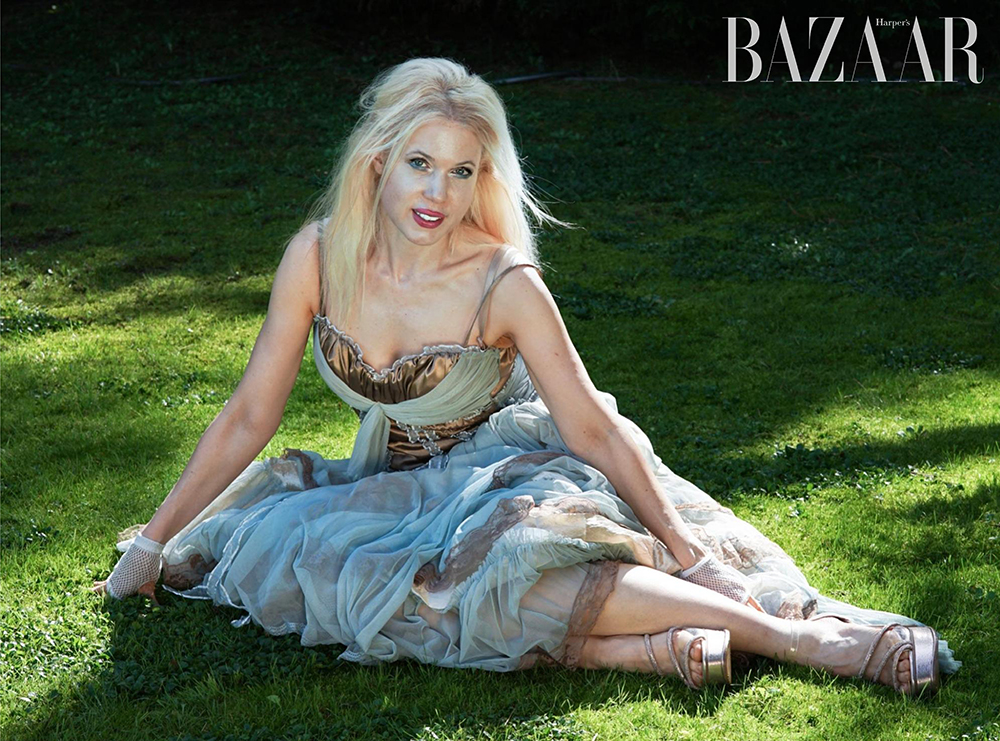
Her book, “The Angel”, is a bestseller.
Model to Writer: A Life-Changing Transition
Melanie Francesca’s transition from reigning over high-stakes modeling to writing captivating pieces in the field of writing is nothing short of awe-inspiring. What initially began as a typical career in modeling has transformed into a literary journey, further uplifted by the support and recognition from influential figures within the world of Italian culture.
Maria Rita Parsi, the esteemed Italian psychologist, eloquently describes Melanie as “an author capable of setting the imagination galloping freely, unrestricted by boundaries.” This description serves as both a compliment and an aspiration—to liberate our minds and soar toward the majestic soul world. Parsi goes on to say, “Melanie Francesca is a delightful surprise, above all, for her extraordinary ability to create emotionally rich scenarios that draw from the depths of myth and transcend time. She is like a female James Joyce, offering a narrative to savor, one that unlocks the doors to the uncharted territories of our unconscious.” Melanie Francesca’s artistic career is a proof of her boundless creativity and the impact of her work.
The philosopher and professor Stefano Zecchi provides a thoughtful and structured analysis of Melanie’s visual and historical talents. He acknowledges the sheer beauty of her work from a literary perspective and highlights Melanie’s exceptional command of language and linguistic structure. His remarks about Melanie Francesca reflect the depth and richness of her artistic contributions.
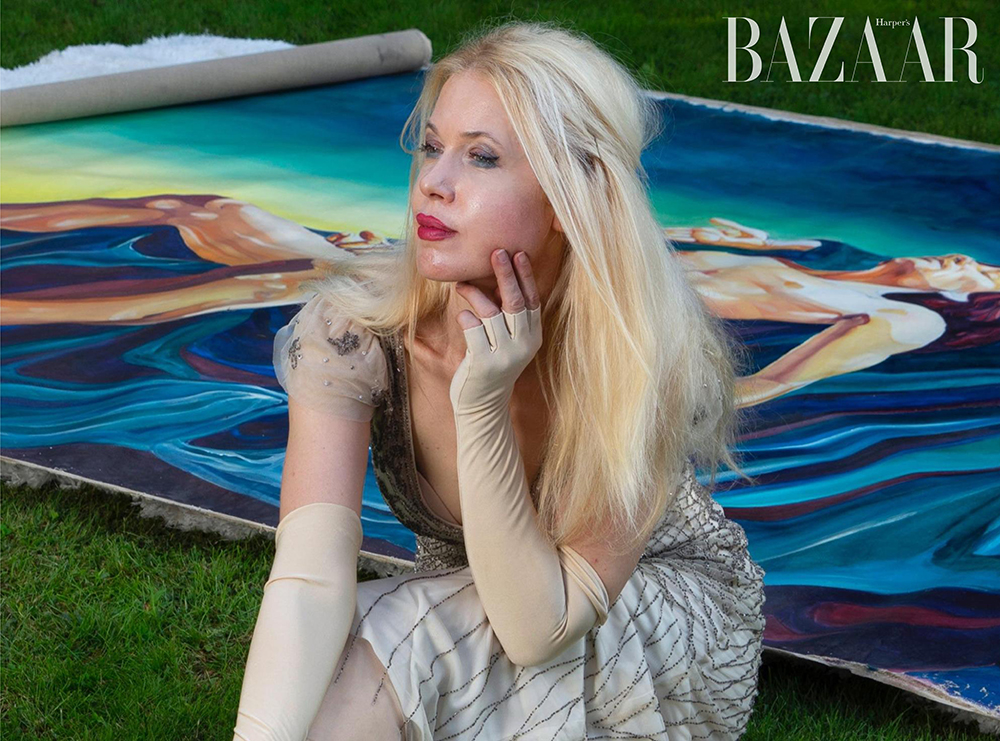
Melanie Francesca in front of one of her giant oil paintings on canvas.
Melanie’s Immersive Art
Melanie’s creativity goes beyond the conventional boundaries and mediums, establishing her as a visionary who effortlessly travels beyond the norms of modeling and visual art. Her creative spirit knows no limits, and within her imaginative world, she blurs the lines between myth and modernity. At the core of Melanie Francesca’s exhibition lies her magnum opus, “The Box,” an installation that seamlessly melds classical mythology with contemporary insights. This artwork, with its astonishing weight of 400 kilograms and dimensions measuring three by three meters, serves as a portal inviting viewers to begin an intimate journey through the annals of human history. Within its design, it unravels the complexities of the human condition.
“The Box” finds support from the Minister of Tolerance of the United Arab Emirates, H.H. Nahayan Bin Mubarak Al Nahayan. Who believes in her exceptional talent: “which skillfully combines her form of prayer to the universe and to the omnipotence of nature, as well as to the grandeur of the human being. In a technological age like ours, it is a message of freedom, hope, and undeniable modernity,” he affirms.
The box pays homage to both Western and Middle Eastern cultures. It serves as a powerful statement, promoting the celebration of diversity and the pursuit of harmony in a world that often finds itself divided.

On a trip to Vietnam.
Melanie’s artistic timeline is characterized by her distinct and poetic vision, which has earned her recognition in the art world. Her unique language of poetry draws inspiration from sacred texts, prophets, and the works of literary pioneers such as Dante Alighieri’s “Divine Comedy” and symbolist poets like Rimbaud and Baudelaire. Melanie’s artistic style carries significance, as noted by Vittorio Sgarbi, renowned art historian and Undersecretary of State at the Ministry of Culture, who emphasizes that while not everything may be immediately understood, Melanie’s art leaves a clear impact on those who engage with it. Her work connects with audiences, leaving them with a sense of solemnity and cryptic fascination that lingers within. Melanie’s art, similar to modern lyric poetry, challenges the boundaries of conventional artistic expression, offering viewers an opportunity to explore the depths of human emotion and spirituality through her unique lens.
Melanie Francesca’s recently published novel, “The Angel,” represents a significant addition to her work, further cementing her commitment to exploring the true, the beautiful, and the sacred. This literary piece offers readers an opportunity to rise above the noise and chaos of everyday life, exploring the orderly spaces of the soul and the deep emotions of love. “The Angel” reflects Melanie’s bond to weaving spirituality and contemplation into her artistry, a theme that has consistently permeated her career. In this novel, she continues her exploration of the human experience, inviting readers on a journey that mirrors the depth and complexity seen in her visual art. Melanie Francesca’s “The Angel” is poised to captivate readers, providing a space for introspection and a respite from the demands of contemporary existence.
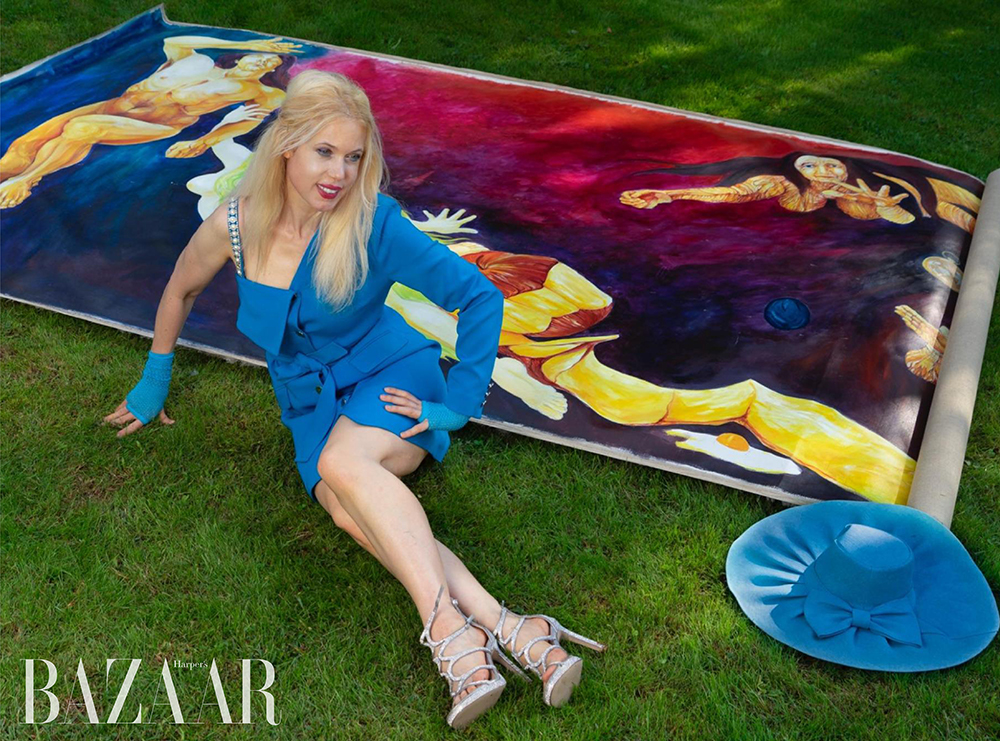
Melanie Francesca in front of one of her giant oil paintings on canvas.
Melanie Francesca enjoys the spiritual approach to life, the karmic vision, and the concept of reincarnation that Asians live by. These Asian spiritual concepts are some of the themes addressed in her new book ‘The Angel.’
“I have lived in the Emirates for twenty years,” explains Melanie Francesca, who just came out with the book The Angel. “UAE society is largely made up of Asians. My children belong to the third culture, which is precisely this melting pot of languages and nationalities that produce intelligent people, evolved in step with the liquidity of modern times. The world is gradually becoming one. I like Asia’s continuous spiritual approach to life, this karmic vision in which everything seems to go backward, and the concept of reincarnation. These are themes that I also address in The Angel, a book that has a spiritual vision of life very similar in some ways to the Indian one. Belonging to a planet that is based on duality, what we can encounter is the alternation of opposites continuously, and this is what we call karma. It would be enough to abstract ourselves from duality in the dimension of the soul, to move away from the dimension of karma and its repetitive consequences. Karma is nothing more than continuing to identify ourselves with matter instead of with the space of the spirit.
Dixi, the protagonist of my book, is immersed in matter, and for this, she suffers. She is trapped in a dangerous, annihilating relationship; she comes from a difficult family situation of abandonment; everything can be traced back to the wound with which she was born and for which everything that happens to her repeats itself endlessly to show the original wound. In Asia, you would say that this is Karma. We come into the world with a wound, and our mission is to discover it; when you discover it, you heal. Everything that happens to us serves this purpose: to show us our suffering without more than suffocating it and covering it with excuses, toxic addictions, even in love relationships.”
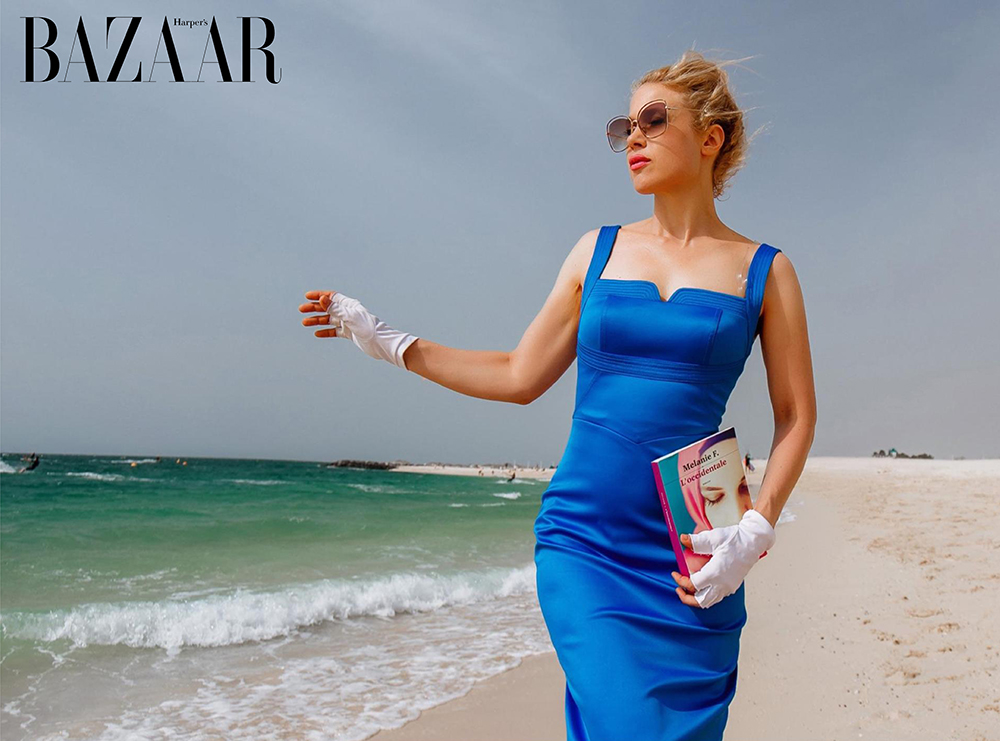
The Angel is based on a spiritual vision of life, in which she highlights the concept of karma. According to her, karma is nothing more than continuing to identify ourselves with matter instead of with the space of the spirit. The book takes us on Dixi’s journey, who is immersed in matter, and for that, she suffers. She is trapped in a dangerous, annihilating relationship; she comes from a difficult family situation of abandonment; everything can be traced back to the wound with which she was born and for which everything that happens to her repeats itself endlessly to show the original wound.
“Alan, who in the West is called a guardian angel and in the East is a guardian spirit,” tells us Melanie Francesca, “is actually the soul of a person who lived in Paris in the 1700s, a follower of a great esotericist called the count of St. Germain, who wakes up from his sleep and falls in love with Dixi and her human frailty. He is an angel because he works for good; he was placed by God next to Dixi to help her, but he is also human because he is still tied to that earthly carnality and materiality that make him better understand his client and the emotions in which she is lost. Of course, as he tries to talk to her and advise her, Dixi ignores him because she doesn’t see him. The atmosphere of the novel is dark, gothic, and rock music like Jim Morrison’s words that return frequently to remind us that nothing is as solid as it seems, to break the patterns with which we are used to seeing the world.
The plot is indeed compelling: It’s Paris at the beginning of the 2000s. An angel falls in love with Dixi, a fragile girl who works as a model. Born into a wealthy French family with bourgeois roots, Dixi has had to raise herself, a girl lost in a chaotic life with neither rules nor a future, and now at the mercy of a gypsy with whom she is hopelessly in love and who drags her down, playing with her feelings, into a series of dark events. The spirit, Alan, follows her everywhere until he reveals himself to her in the churches, where she finds refuge and comfort. “You have to observe yourself when you feel a painful emotion because that is the door to self-awareness,” says the angel to Dixi. Melanie Francesca helps readers to wear a pair of magical lenses to see the world from a spiritual point of view to solve the problems of our existence.”
Melanie Francesca has set her novel in a dark, gothic atmosphere, with rock music like Jim Morrison’s words that return frequently to remind us that nothing is as solid as it seems, to break the patterns with which we are used to seeing the world. Francesca enchants her readers to see the world from a spiritual view, where Dixi’s story begins in the early 2000s in Paris, where she is born into a wealthy French family. “The Angel” can be found on all digital platforms.
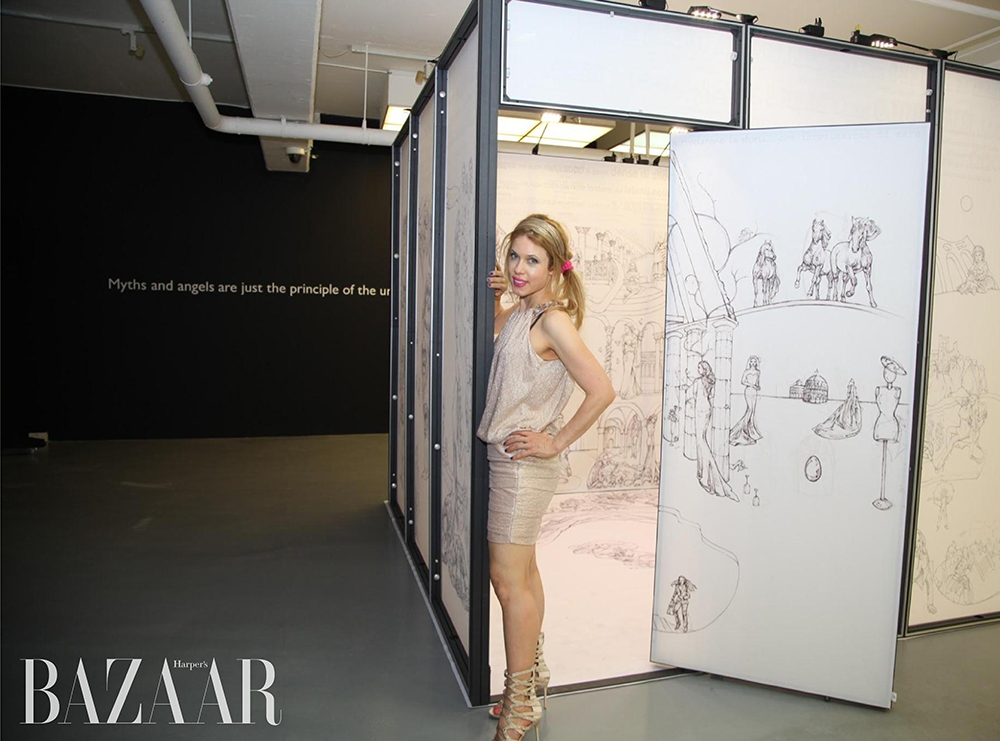
Sitting down to chat with her, I have lots of questions:
What prompted you to write this book? What inspired “The Angel”?
“The Angel” was born out of my need to find relief from certain internal sufferings that I carried inside. The sense of abandonment and the confusion of feeling betrayed. It is not my own story, but one that a writer invents to make the reality he experiences more real. In the end, the book felt as if it had been dictated to me. There was always someone invisible next to me, running their hands over the computer keyboard. Someone who filled me with chills and continues to speak to me even now, when I light a candle and listen. The afterlife penetrates us, and the spirits that surround us speak to us continuously. We are like antennas that receive and return messages. We simply need to tune in to their wavelength, which vibrates at a slower, deeper speed, like the song of the earth and nature. This is a dimension in which everything stops: our frenzy, stress, and haste. We feel as if the silence is sucking us into a bubble of emptiness. We are suspended in non-time, also known as the space of presence, the continuous present. When we enter this fifth dimension, we are free from the bonds of space and time. We begin to touch the true essence of reality. This space of presence opens the doors of awareness, which means realizing that the reality around us is not what it seems. In this new space, we can change our reality because we change ourselves. When we transform ourselves, the external world changes too. But we cannot change the outside world without entering this space of awareness.
Tell us about the language of your latest book.
My latest book of poetry, published in Italian with Mondadori, is based on the sound and power of the word in almost biblical terms. It is as if words carry sound vibrations that heal by resonating in our bodies, like Tibetan singing bowls, shamanic drums, or modern bioresonance therapy, a recognized Western healing method. In fact, the ancients already understood this with their shamanic songs, and my poetry is like a shamanic song: it elevates and leads to beauty. My book also opens up another spiritual world, once accessible only to a few priests, but now within everyone’s reach thanks to the internet and the spread of knowledge. With the democratization of esoteric knowledge, new knowledge and current sensitivities are born. This is why my book has been compared to James Joyce’s work: partly because, like Ulysses, it is often difficult to understand, but also because it has an altered psychedelic sensibility.
In contrast, “The Angel” is written in a normal and romantic language. The psychedelic element is in the story itself: an angel meets a lost girl in the depths of life and falls in love with her. He guides her with his wisdom, telling her that we are in the world to heal the wound with which we are born and that everything that surrounds us, from accidents to diseases, is simply a way for the universe or God to wake us up. This book helped me to understand that even though I would have liked it to end differently, the angel did not allow me to do so.
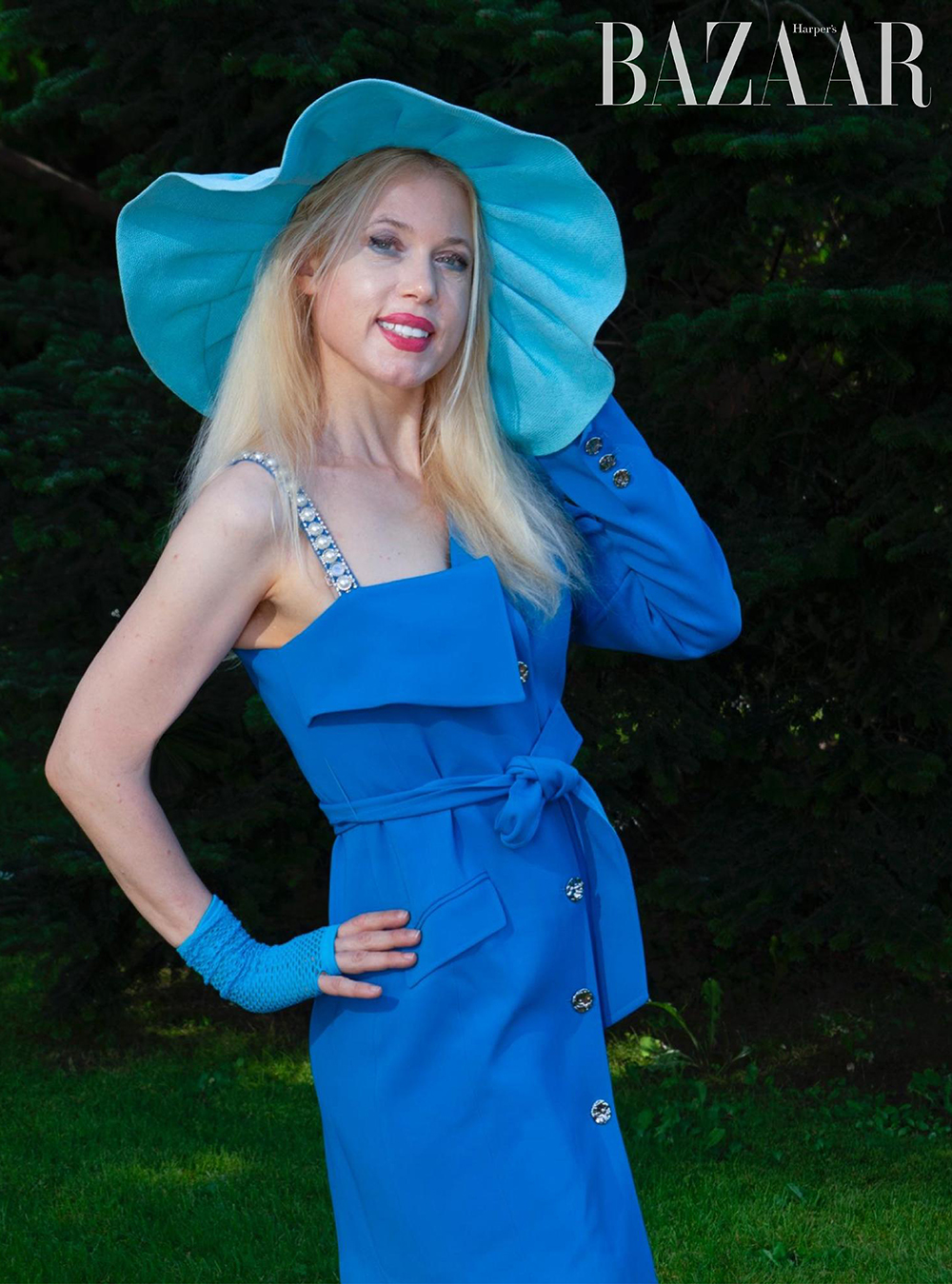
Were there any surprises in the writing process for “The Angel”?
The surprise is that I didn’t know where I would end up, but this is a constant in my writing process. I know where I start, but instead of having a specific plot in mind like rational writers do, I follow the logic of the unconscious mind, which is essentially the madness of mystics or the imagination of artists. I fly to places where I may not even want to go. In the end, I find the novel finished effortlessly, simply by listening to and transcribing the voice inside me that dictates to me with a thousand shivers.
It’s not me who is writing; it’s something greater, and I simply watch myself transcribe what is being said to me. The same thing happens with poetry, as if it were automatic writing dictated from beyond. It feels so good to be writing that I never want to stop. There is such a charge and energy while I write that I start to think I am really in heaven.
Harper’s Bazaar Vietnam


